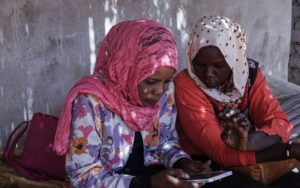Data can have a significant transformative power in internal displacement situations – which we in JIPS have witnessed throughout our 11+ years of supporting data-related, collaborative efforts in over 25 different contexts around the world. The role of data in addressing internal displacement should be seen as cross-cutting and can – and should – go beyond the need to provide evidence for policy and response. When designed, collected, and analysed collaboratively, data has the potential to change attitudes and contribute to incentivizing buy-in and political will; build trust among actors that often have competing agendas; foster long-term collaboration; maximize local knowledge, build local capacity and promote capacity sharing and complementarity.
This policy paper, elaborated in response to the call for submissions by the High-Level Panel on Internal Displacement, provides forward-looking recommendations for stepped-up action by all actors involved in addressing internal displacement. Divided into four sections, they span across the different areas outlined by the High-Level Panel (government leadership, working effectively at the nexus, solutions, IDP participation, and innovative financing) and offer concrete answers, underpinned by practical examples and building on JIPS’ rich field experience.

Data collection as part of the durable solutions profiling implemented in El Fasher, North Darfur (Sudan) between 2016 and 2019.
Catalysing political will and responsibility cannot be achieved through a quick or one-time-off effort. Instead, it is a long-term process that can be supported and leveraged by external actors but must always build up from within a country. While data isn’t the only determining factor, JIPS’ experience has demonstrated that it is a powerful vector of change if treated as a collaborative process. Our key messages in this area are as follows:
A sound evidence base is essential to inform durable solutions and monitor progress towards their achievement. However, achieving durable solutions is a complex process with significant human rights, humanitarian, development, and peace-building challenges, which requires concerted efforts involving multiple actors, a meaningful engagement with IDPs, the context they settle in or return to, and the wider society. Data processes informing solutions should reflect this, and contribute to bringing together humanitarian, development and peace actors, to develop a joint evidence base, and ensuring a whole-of-society approach that engages meaningfully IDPs, the context and local actors in the data process, in order to build IDPs’ self-reliance, leverage the context and communities for the benefit of both IDPs and their broader environment, and contribute towards efforts of (re)integration. Our key messages here are:
Internal displacement situations are catching up with other emergency contexts with regards to the availability of data and the proliferation of actors, as well as capacities of actors to handle data. The information management field is increasingly urged to not only better link data systems (including effective connections between operational data systems as well as between those and national official statistics), but also to improve data responsibility beyond the legal and technical aspects and prioritise establishing frameworks for enhanced data sharing, increased interoperability, and joint analysis – all conditions to encourage the efficient use of both resources and data. Our key messages here are:
Responding to the unique challenges of urban displacement requires a comprehensive analysis that combines an area-based and people-centred approach that link displacement-affected populations to the places they settle in and the wider urban environment. Over the years, JIPS has become a global actor on urban profiling in internal displacement situations, having accumulated substantial experience working closely with local authorities and national statistical offices in a variety of urban contexts, including Mogadishu, Kurdistan Region of Iraq, Syria, Yemen, North Darfur (Sudan), and Ukraine (ongoing).
Based on this experience and our established long-term partnerships, we have submitted a separate set of comprehensive recommendations, in collaboration with the International Institute for Environment and Development (IIED) and UN-Habitat. The considerations and recommendations outlined have IDPs’ rights to a dignified urban life at their core, and promote a fundamental re-evaluation of how governments (local and national), donors, and humanitarian and development actors can work together to address urban displacement.